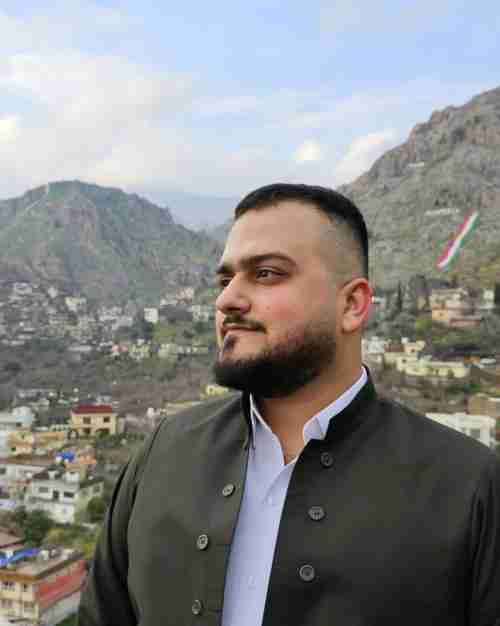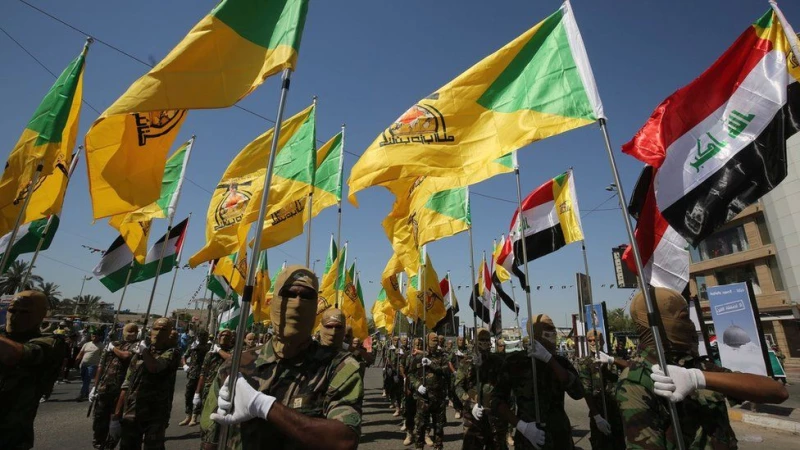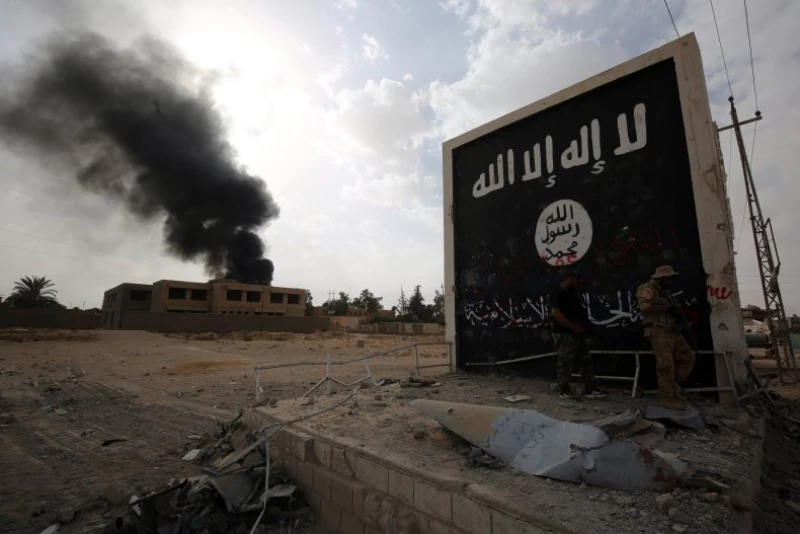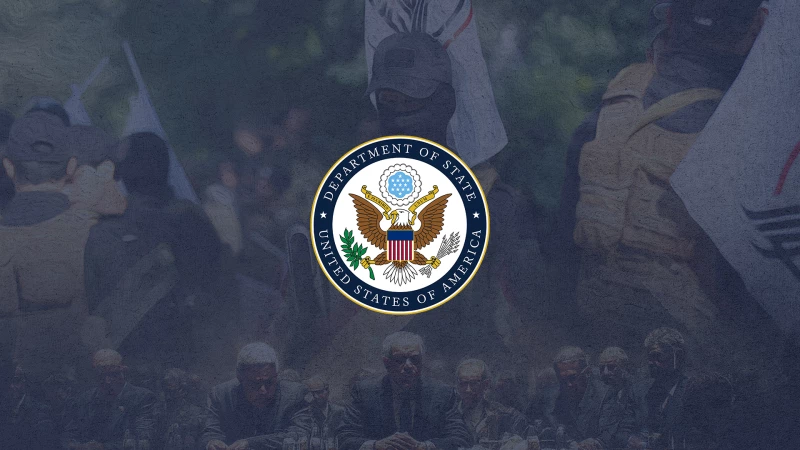ERBIL, Kurdistan Region of Iraq - An Iraqi broadcaster has terminated the contract of one of its presenters, accusing the host of attempting to use the channel’s popularity to “achieve an unethical trend,” after a guest on the show made references which were interpreted as queer, as the country continues to crack down on homosexuality.
A snippet from the most recent episode of “Stroke of Pen” - a show airing on Iraq’s Samarra TV - sparked large controversy across social media after the host, Aithar al-Tamimi, asked his guest, local poet Ali al-Janoubi, about his love life.
Janoubi described a recent experience where a love interest asked him to cut his hair and grow out a beard. While he did not specifically mention the person by name, Janoubi repeatedly referred to the love interest with male pronouns.
The episode aired on Sunday, but was reportedly recorded days before.
Following heavy backlash and outcry from the conservative-majority Iraqi public, Samarra TV on Thursday issued a formal apology for the “offensive” remarks made during the show, stressing that the episode was in violation of the values adapted by the channel.
“Samarra TV confirms that it is completely innocent of the content of this episode, and that this mistake was the result of an unacceptable transgression by the program presenter, who tried to exploit the name of the channel to achieve an unethical 'trend' that does not represent its message and goals,” read the statement.
The statement added that the channel has terminated the host’s services, claiming that Tamimi had hosted Janoubi without informing the network of the guest’s name or the content of his speech.
Iraq's media landscape is heavily influenced by political parties, which control editorial policies. Death threats and abductions are common tactics to intimidate and silence journalists, affecting both high-profile and lesser-known reporters.
The Iraqi High Commission for Human Rights on Saturday renewed its call on national authorities to increase efforts to protect journalists from violations and assaults committed against them while practicing their profession.
Following his termination, Tamimi took to social media to criticize the channel for putting the blame on him, stressing that the episode had been recorded days before it was aired and that segments could have been edited out if the channel wanted to.
“The esteemed Samarra TV says they did not know about the episode and the guest. How? Did I wear an invisibility cap and enter the studio? Where were the cameramen? Where was the editor who is supposed to cut? Where was the office manager?” decried the host.
“Am I, as a host, held liable for what the guest says? Where is the logic in that?” he added.
In a separate video statement, Tamimi responded to his critics by highlighting poems he has written over the years condemning and criticizing the spread of homosexuality in Iraq.
Janoubi also responded to the accusations made against him, blasting his critics and saying his body of work speaks for itself, citing poems he has penned honoring Iraqi armed forces and religious figures within the country and the Islamic Axis of Resistance.
“When we address a girl, out of respect to her principles and values, we poets address her as a male, not a female,” said Janoubi, apologizing if his remarks had offended the art form of poetry and literature, and added that he will be stepping away from writing poetry for the time being.
In Iraq, the LGBTQI+ community frequently experiences discrimination and persecution at the hands of security forces and the predominantly conservative population. Members of the community are at risk of arrest, verbal harassment, abduction, sexual violence, and even murder.
The Iraqi parliament in April approved a list of amendments to the 1988 Law on Combating Prostitution, criminalizing consensual same-sex relations by up to 15 years in prison.
The new law outlawed the activities of organizations working on LGBTQI+ issues in Iraq, stating that promoting homosexuality “in any way” will be punishable by at least seven years in prison and a 10 to 15 million dinar fine.
The amendments also criminalized sex-reassignment surgeries, stipulating a one-year to three-year imprisonment period for both the person undergoing the operation and the surgeon.
The passing of the law was highly criticized by human rights monitors and the international community.
“The Iraqi parliament’s passage of the anti-LGBT law rubber-stamps Iraq's appalling record of rights violations against LGBT people and is a serious blow to fundamental human rights, including the rights to freedom of expression and association, privacy, equality, and nondiscrimination,” Rasha Younes, LGBT rights researcher at Human Rights Watch, told The New Region in April.
Additionally, authorities in Iraq have been repeatedly criticized by international watchdogs for restricting media freedom and suppressing dissident voices.
Reporters Without Borders (RSF) ranks Iraq 169th worldwide this year in terms of press freedom, marking a two-rank drop from last year’s 167th ranking.

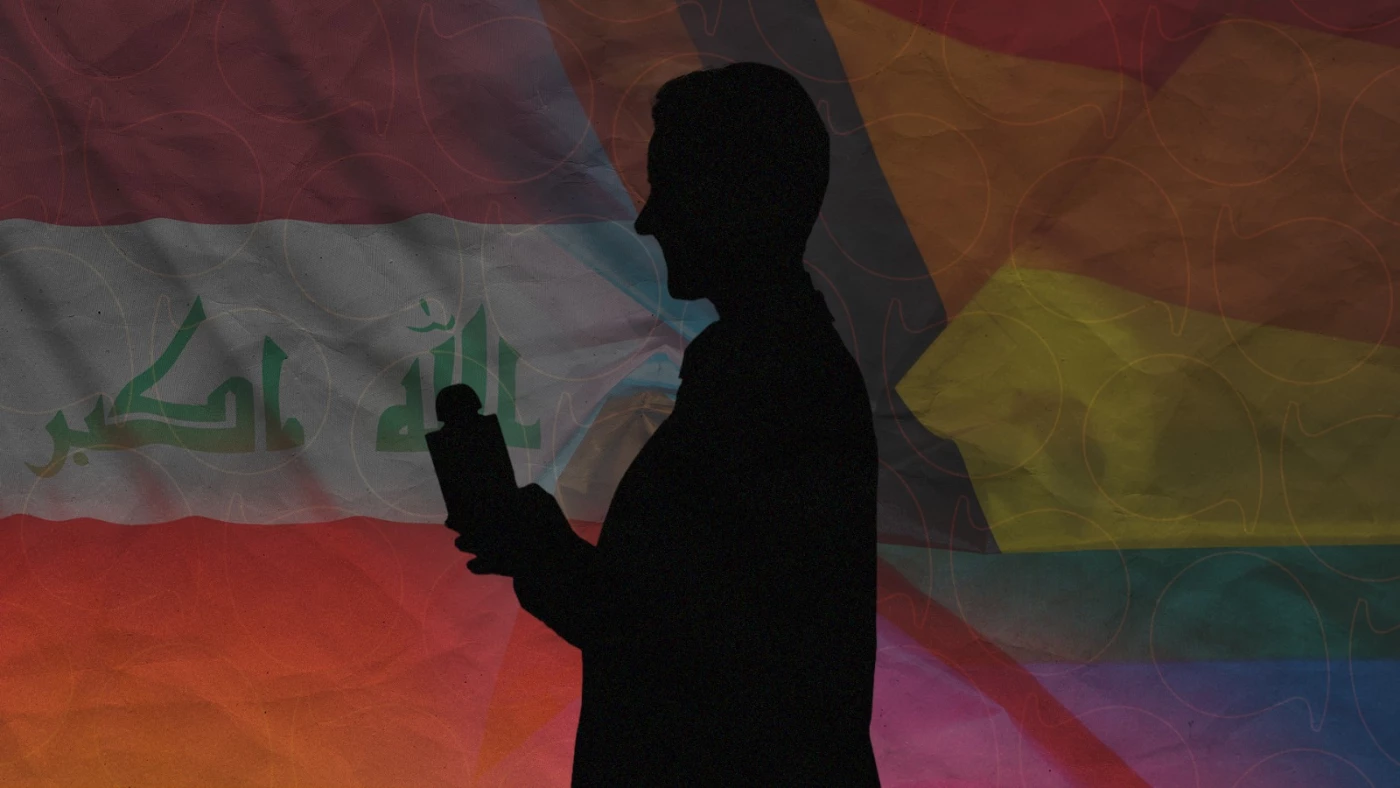
 Facebook
Facebook
 LinkedIn
LinkedIn
 Telegram
Telegram
 X
X
